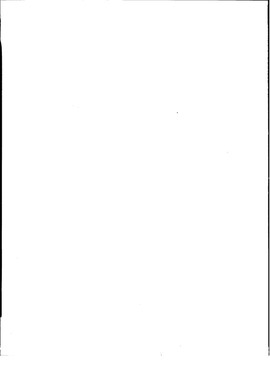| dc.contributor.author | Al-jasir, Abdullah Saleh, | en_US |
| dc.date.accessioned | 2013-08-16T12:28:30Z | |
| dc.date.available | 2013-08-16T12:28:30Z | |
| dc.date.issued | 1982 | en_US |
| dc.identifier.uri | https://hdl.handle.net/11244/4964 | |
| dc.description.abstract | The study also includes an historical analysis of the domestic development of the mass media within the Kingdom. This information is required since any development of an international communication system will be based on existing domestic capabilities and technologies with appropriate expansion. In addition, there is a review of the structure of the Ministry of Information, a survey of the international communication department, and a review of the activities of the Higher Council of Information. | en_US |
| dc.description.abstract | This study is designed to provide an analysis of the international communication goals, techniques, and effectiveness of the United States and the Soviet Union and to create a plan to permit the Saudi Arabian government either to develop new techniques or improve existing ones in its international communication system. The Saudi Arabian government, which has been in power since 1932, has directed political, economic, and social choices to ensure the country's evolution from an under-developed nation into a modern one in a careful, measured combination of capital-intensive and labor-intensive strategies for planned change. As a result, the Kingdom has emerged from a nation struggling to catch up with the developments of the Twentieth Century into a major world power, capable of utilizing the most advanced forms of technology to meet the needs of its people. | en_US |
| dc.description.abstract | To illustrate the need for a Saudi Arabian international communication system, the study reviews the weaknesses of the Kingdom's current efforts and proposes a workable plan for establishing an international communication agency, including policies and goals, an adaptation of strategies and techniques from the United States and the Soviet Union, suggested organization and structure, personnel requirements, and examples of international outreach efforts. | en_US |
| dc.description.abstract | Based on the Kingdom's history and its existing capabilities, it seems logical that the next phase of Saudi Arabian development probably should include continued use of technology to establish a sophisticated communication system to interpret the nation's foreign policy, cultural and religious heritage, social traditions, economic development, and political stability to the rest of the world. | en_US |
| dc.description.abstract | However, since there is little precedent for international outreach effort in the Kingdom, a comparison of the approaches of the two superpowers, the United States and the Soviet Union, provided strategies and techniques which could be adapted for use in Saudi Arabia. | en_US |
| dc.format.extent | vii, 233 leaves ; | en_US |
| dc.subject | Mass Communications. | en_US |
| dc.subject | Journalism. | en_US |
| dc.title | An analytical and descriptive comparison of international communication systems in the United States and the Soviet Union as adapted for use in Saudi Arabia. | en_US |
| dc.type | Thesis | en_US |
| dc.thesis.degree | Ph.D. | en_US |
| dc.thesis.degreeDiscipline | Department of Communication | en_US |
| dc.note | Source: Dissertation Abstracts International, Volume: 43-02, Section: A, page: 0296. | en_US |
| ou.identifier | (UMI)AAI8215898 | en_US |
| ou.group | College of Arts and Sciences::Department of Communication | |
